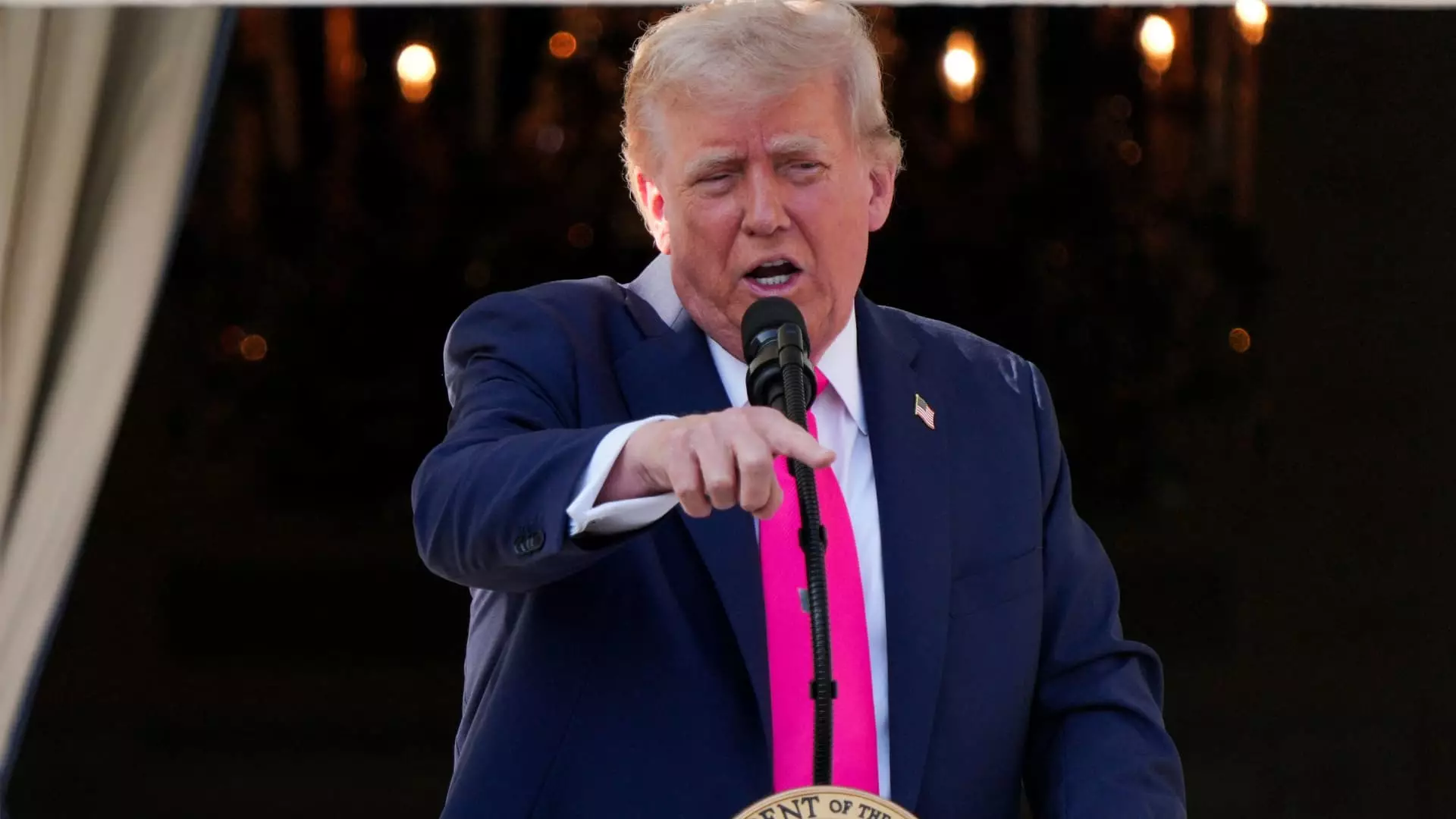In recent weeks, the Trump administration’s aggressive push to impose tariffs on international trade has signaled a troubling shift away from collaborative economic diplomacy. Instead of engaging in genuine dialogue to address mutual concerns, the U.S. has adopted a confrontational “take it or leave it” approach, delivering ultimatums wrapped in divisiveness. Such tactics threaten to destabilize a global economy already strained by various geopolitical tensions and economic uncertainties. By signaling intentions to slap tariffs as high as 70%, the administration risks eroding the trust and stability essential for sustainable international trade. This unilateralist stance dismisses the interconnected nature of modern economies, where cooperation and reciprocal benefits are vital for growth and innovation. Instead, it prioritizes short-term domestic political gains over long-term global stability.
Economic Nationalism: A Short-Sighted Strategy with Long-term Risks
The move to escalate tariffs, especially when most countries remain vulnerable to retaliatory measures, exemplifies a retreat into economic nationalism. While protecting certain domestic industries may seem appealing, the broader consequence is often economic harm that reverberates globally. Higher tariffs obstruct supply chains, inflating costs for consumers and businesses alike. The promises of “better” deals through tariffs are often illusory; negotiations plagued with delays and setbacks reveal that protectionist policies serve more as political posturing than a genuine effort to promote fair trade. Furthermore, the administration’s unwillingness to accept compromises demonstrates a myopic focus that ignores the undeniable fact: trade barriers hurt innovation, raise consumer prices, and hinder economic growth for all involved.
Diplomatic Strains and the Erosion of International Alliances
Trade policy should be a tool for fostering international cooperation, not a weapon for contentious power displays. Unfortunately, recent actions by the Trump administration have sown discord among traditional allies such as the European Union and Japan. These nations, long-standing partners, are now facing the prospect of increased tariffs that threaten their economic stability and diplomatic relationships with the U.S. This approach not only risks retaliation but also damages the credibility of the U.S. on the global stage. Alliances built over decades are now under threat, as negotiations shift from collaborative endeavors to brinkmanship. This destabilizes international consensus, making future negotiations more difficult and fostering an environment of mistrust rather than mutual respect.
The Illusion of Short-Term Gains Over Long-Term Prosperity
The administration’s focus on immediate tariff hikes, without a clear strategy for sustainable economic relations, underscores a shortsighted approach. While it may seem that increasing tariffs will protect certain jobs or sectors, the reality is that most consumers and industries pay the price through higher costs. The hope to reach quick agreements—such as the limited deals with Britain and Vietnam—fails to compensate for the broader damage done by disrupting established trade networks. When the global economy is interconnected, insular policies threaten to trigger a cascade of economic repercussions that could last for years, potentially reversing decades of growth and cooperation.
A Call for Fair and Balanced Trade Negotiation
Rather than resorting to coercion and aggressive tariffs, a more constructive approach would involve fair negotiations rooted in transparency and mutual benefit. Policies should prioritize long-term economic stability and equitable growth, emphasizing respect for international institutions and agreements. The purpose of trade is not just to serve national interests but to build resilient, reciprocal relationships. This requires patience, diplomatic finesse, and an acknowledgment that sustainable prosperity cannot be imposed through threats or punishment. Fostering dialogue rather than dictating terms would better serve the U.S. economy and the global community in the long run, promoting fairness without sacrificing American economic interests.


Leave a Reply